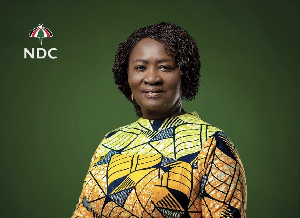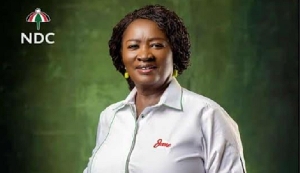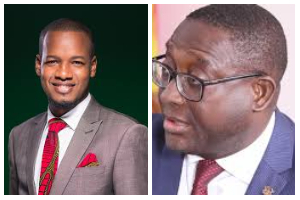Imagine a scenario of a Cabinet overloaded with rival Presidential aspirants. One aspirant brings out a wonderful proposal. It is costly; it will give high marks to the ruling party; it will be very good for the country. Yet, it will also increase the ratings of that minister and aspirant. Will his rivals around the table give the project their maximum support or shoot it down? This, we fear, is one of the live risks facing a ruling party with several ministers vying for the succession. How many of these ambitious creatures will be influenced by the bigger picture rather than the political advantage his rival is likely to gain from such a project?
Over the past few weeks, The Statesman has warned against the dangers of political squabbling - with our country's leaders so wrapped up in name-calling and mud-slinging that other, more important issues fall by the way side. Poverty, sanitation, education, health, housing – these are some of the issues this country should be addressing, we have argued. The pointless rhetoric and back-and-forth accusations are not growing our economy, are not reducing our diseases, are not paying our salaries. Active policies, not politics, should be the priority of the leadership of this country on all sides of the political spectrum.
Our criticisms were directed towards the recent antagonism between the opposition National Democratic Congress and the ruling New Patriotic Party – the two groups which, between them, dominate political discourse in this country and divide political opinion; the only two groups which stand a realistic chance of retaining or winning-back the Presidency come the General Elections in two year's time.
Today, we want to highlight developments we suspect are within the President's own party, specifically at Cabinet.
It is achievements, results, that will matter in two years' time. Has the government fulfilled its promise of a new Golden Age of Business? Is private-sector led development bringing about the economic break-through we have hoped for? Is the doctrine of property-owning democracy being fulfilled? Is Government health policy helping us progress towards the Millennium Development Goals? And does the man on the street have more money in his pocket – or at least, the educational and job opportunities to allow him to do so? These are the questions the electorate will be asking.
So today, The Statesman extends a word of warning to all those contesting the NPP Presidential ticket not to lose sight of the wider goal; a successful party record which will win another term in office, the realisation of targets and promises – rather than a successful personal campaign, which may win the party's Presidential ticket, but lose the party the next elections. Already, the majority of credible candidates aspiring for the Presidential ticket are from within Cabinet.
Amongst those who have virtually confirmed their candidacy in next year's flagbearer race are the Vice President, Alhaji Aliu Mahama; the Foreign Minister, Nana Akufo-Addo; the Defence Minister, Kwame Addo Kufuor; Hackman Owusu Agyeman at Water Resources, Works & Housing; Alan Kyerematen at Trade, Industry, Private Sector Development and PSI; Mike Oquaye at Communications; and, most recently, Papa Owusu Ankomah at Education, Science & Sports. The Statesman is also reliably informed that the Majority Leader, Felix Owusu-Adjapong, is planning to stand – although he has yet to declare his candidacy, and is unlikely to do so any time soon.
And whilst personal ambition can spur a minister on to perform – to improve his ministry, make his mark and prove his qualities – they must all be careful that their individual aspirations, the whirl of almost perverse competition which currently seems to be engulfing the party, does not cloud the issues they have promised to fight and the party they all, ultimately, want to remain in power. They must be careful – because there are several counts on which any discerning voter might accuse the government of under-performing. And whilst Ghana is a country which faces many development challenges, which has advanced significantly under its recent leadership – to be seen concentrating on campaigns, rather than change, could nonetheless increase that impatience for more pronounced improvement.
A property-owning democracy was one of the promises of Kufuor's government, for example – but as his ministers warm up for a Presidential flagbearer campaign which is just beginning to get under way, how far have we come towards realising that goal? One needs only to walk the streets of Accra, Kumasi and the country's other urban areas to witness the miserable millions of homeless people in Ghana – over 10 percent of the population, according to some estimates.
And even for those with a roof over their heads – how many actually own their houses? Where are the houses for them to buy – and where are the Government initiatives to encourage more housing developments, more affordable prices and more favourable payment options?
The competition is on, and we do not believe that in itself is inherently negative. But, we call on the aspirants and their supporters, especially those in positions of influence, to be always guided by the national interest and if that coincides with other interests, let them be patriotic and mature enough to appreciate priorities.
Imagine a scenario of a Cabinet overloaded with rival Presidential aspirants. One aspirant brings out a wonderful proposal. It is costly; it will give high marks to the ruling party; it will be very good for the country. Yet, it will also increase the ratings of that minister and aspirant. Will his rivals around the table give the project their maximum support or shoot it down? This, we fear, is one of the live risks facing a ruling party with several ministers vying for the succession. How many of these ambitious creatures will be influenced by the bigger picture rather than the political advantage his rival is likely to gain from such a project?
Over the past few weeks, The Statesman has warned against the dangers of political squabbling - with our country's leaders so wrapped up in name-calling and mud-slinging that other, more important issues fall by the way side. Poverty, sanitation, education, health, housing – these are some of the issues this country should be addressing, we have argued. The pointless rhetoric and back-and-forth accusations are not growing our economy, are not reducing our diseases, are not paying our salaries. Active policies, not politics, should be the priority of the leadership of this country on all sides of the political spectrum.
Our criticisms were directed towards the recent antagonism between the opposition National Democratic Congress and the ruling New Patriotic Party – the two groups which, between them, dominate political discourse in this country and divide political opinion; the only two groups which stand a realistic chance of retaining or winning-back the Presidency come the General Elections in two year's time.
Today, we want to highlight developments we suspect are within the President's own party, specifically at Cabinet.
It is achievements, results, that will matter in two years' time. Has the government fulfilled its promise of a new Golden Age of Business? Is private-sector led development bringing about the economic break-through we have hoped for? Is the doctrine of property-owning democracy being fulfilled? Is Government health policy helping us progress towards the Millennium Development Goals? And does the man on the street have more money in his pocket – or at least, the educational and job opportunities to allow him to do so? These are the questions the electorate will be asking.
So today, The Statesman extends a word of warning to all those contesting the NPP Presidential ticket not to lose sight of the wider goal; a successful party record which will win another term in office, the realisation of targets and promises – rather than a successful personal campaign, which may win the party's Presidential ticket, but lose the party the next elections. Already, the majority of credible candidates aspiring for the Presidential ticket are from within Cabinet.
Amongst those who have virtually confirmed their candidacy in next year's flagbearer race are the Vice President, Alhaji Aliu Mahama; the Foreign Minister, Nana Akufo-Addo; the Defence Minister, Kwame Addo Kufuor; Hackman Owusu Agyeman at Water Resources, Works & Housing; Alan Kyerematen at Trade, Industry, Private Sector Development and PSI; Mike Oquaye at Communications; and, most recently, Papa Owusu Ankomah at Education, Science & Sports. The Statesman is also reliably informed that the Majority Leader, Felix Owusu-Adjapong, is planning to stand – although he has yet to declare his candidacy, and is unlikely to do so any time soon.
And whilst personal ambition can spur a minister on to perform – to improve his ministry, make his mark and prove his qualities – they must all be careful that their individual aspirations, the whirl of almost perverse competition which currently seems to be engulfing the party, does not cloud the issues they have promised to fight and the party they all, ultimately, want to remain in power. They must be careful – because there are several counts on which any discerning voter might accuse the government of under-performing. And whilst Ghana is a country which faces many development challenges, which has advanced significantly under its recent leadership – to be seen concentrating on campaigns, rather than change, could nonetheless increase that impatience for more pronounced improvement.
A property-owning democracy was one of the promises of Kufuor's government, for example – but as his ministers warm up for a Presidential flagbearer campaign which is just beginning to get under way, how far have we come towards realising that goal? One needs only to walk the streets of Accra, Kumasi and the country's other urban areas to witness the miserable millions of homeless people in Ghana – over 10 percent of the population, according to some estimates.
And even for those with a roof over their heads – how many actually own their houses? Where are the houses for them to buy – and where are the Government initiatives to encourage more housing developments, more affordable prices and more favourable payment options?
The competition is on, and we do not believe that in itself is inherently negative. But, we call on the aspirants and their supporters, especially those in positions of influence, to be always guided by the national interest and if that coincides with other interests, let them be patriotic and mature enough to appreciate priorities.












